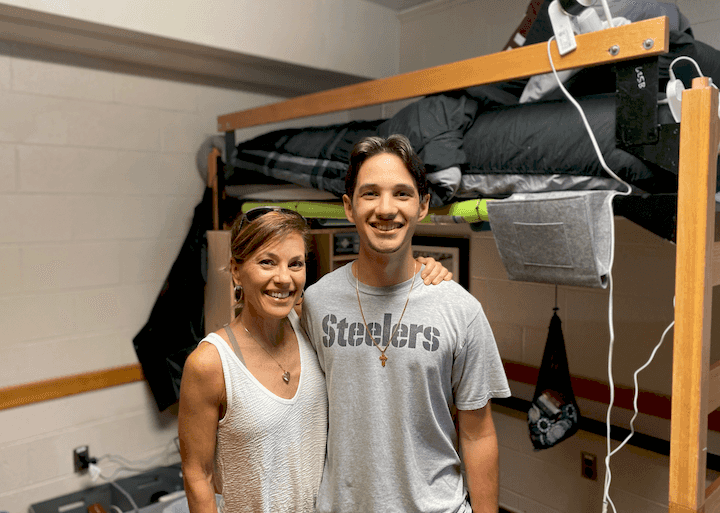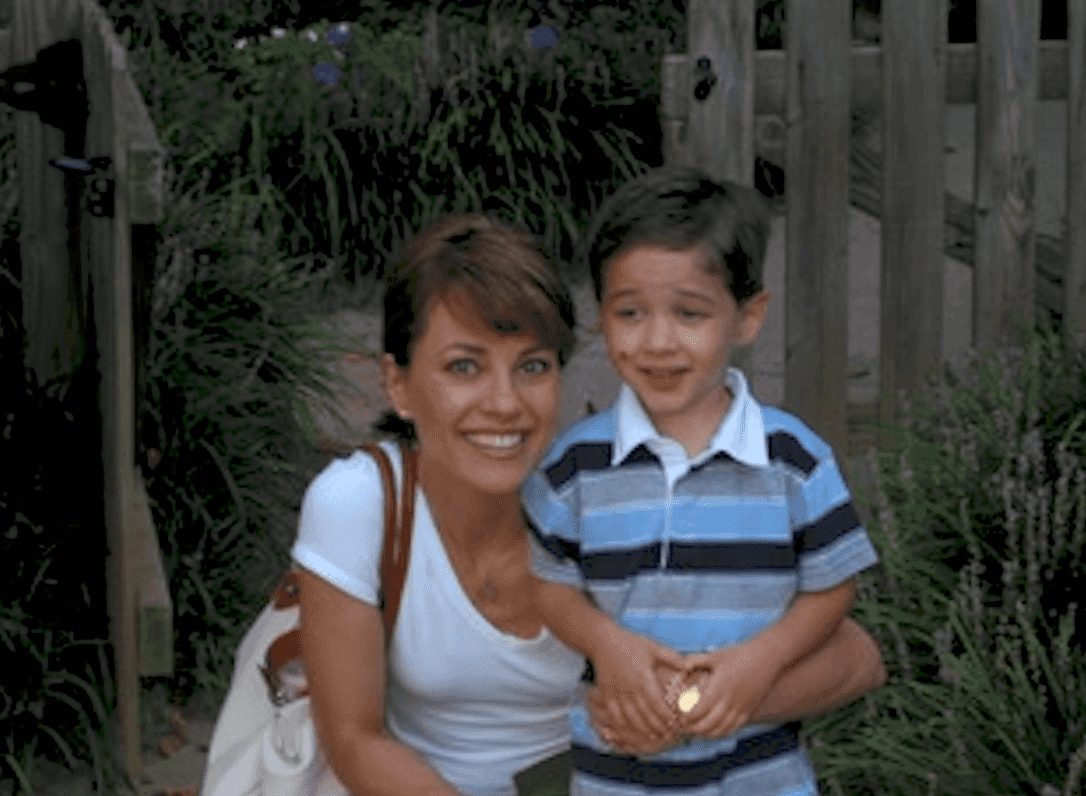She never cried when her son went off to school. She was far and away too excited for him to engage, learn, and take flight into a new world called kindergarten. She thought, maybe, something might be wrong with her? Why wasn’t she mourning her toddler’s transition into the public-school system with abandon, trepidation and tears?
The Covid-19 pandemic now sits comfortably among the greatest pandemics of all time. According the World Health Organization, there have been 700+ million confirmed cases since 2019, and over 7 million reported deaths around the globe. Five years along, it can fairly be said the Covid Effect shook the world.
The United States alone pledged $5 trillion to assuage the chaos which produced spending, inflation, a housing bubble, vaccine controversy, and the advent of remote, hybrid and flexible work. Its effect on global education was a silent executioner.
Certainly, the OECD saw test scores decline. Particularly in math and reading. But it was the disruption to peer-group formation, skill accumulation, and peer effects that never fully recovered. Nearly 40% of all students who start college won’t finish, according to the National Center for Education Statistics.
Moreover, employers are increasingly hiring for skills over a degree; curriculum is largely out of step with generative AI; and students writ large are beginning to question the ROI of a college career. The National Association of Colleges and Employers (NACE) Job Outlook for 2024 reports:
Fewer employers are looking for GPA and are actively removing degree requirements in hiring processes; looking instead to competencies and skill-based hiring.
As nearly 20 million U.S. college and university students head back to class, 49% of all Americans have lost faith with a four-year degree’s promise to launch a well-paying job. Pew Research continues: 60% of parents with children 18-34 still financially subsidize their children; nearly 50% will intermittently live with their parents during this timeframe; and the vast majority of adult children polled admit they continue to turn to their parents for emotional, professional and financial advice. A co-dependency for both not seen since the Great Depression.
Forward-thinking institutions must adapt by forming a symbiotic relationship with AI; all K-12, and at least 50 colleges and universities must reconcile anti-DEI challenges from the federal government; and for those who remain their star pupils must embrace what is and always was the cornerstone of education in America.

Virginia Tech Crew
All rites of passage for teens — high school prom, graduation, sports, activities and avocations — were decimated during the Spring of 2020. In her son's case, rowing season was suspended indefinitely; thus deterring the oldest inter-collegiate sporting event in the United States.
His senior classes in physics, math, and all other prerequisites for a college engineering degree were cancelled, and commencements in 2020 saw all seniors around the U.S. given an option to either pass or fail in their final semester, bypassing a rite de passage into the college admissions process while eviscerating the college and academic experience.
Virginia Tech, renown as a research university in Blacksburg Virginia, is the first four-year public institution among the 11 former confederate States to admit black undergraduates. At the time when the Commonwealth of Virginia enforced Jim Crow laws — racial segregation in public and private schools — Virginia Tech was proudly enrolling the first black students. It can fairly be said their motto “Ut Prosim” has been guiding their alma mater for nearly 150 years with the mantra, “That I may serve.”
While the U.S. Supreme Court ruled 6-3 that race-based affirmative action programs in college admissions violate the Equal Protection Clause of the Fourteenth Amendment, they effectively eradicated affirmative action programs in college admissions across the nation. Chief Justice John Roberts opines in Students for Fair Admissions v. Harvard:
Harvard and UNC have concluded, wrongly, that the touchstone of an individual’s identity is not challenges bested, skills built, or lessons learned but the color of their skin. Our constitutional history does not tolerate that choice.
Still, 26 million people joined the Black Lives Matter protests in 2020, turning the combined interracial protests into the largest civil rights movements in history. Generation Z roared in 2024 with Pro-Palestinian protests that spread across 60 U.S. college and university campuses, and in 2025 the U.S. federal government pushed back against the DEI initiatives in all K-12 and at least 50 institutions of higher learning in lieu of regulating “Merit-Based Opportunity."
Yet as she packed up her son’s belongings, oscillating between emotions of joy and concern, she grew introspective. To wit, her son’s safety, academic challenges, mental health, vaccine controversy, and relationship with social media and AI were now seemingly out of her control. For eighteen years, the job had been about equity: achieving equality among her three children by treating each according to their circumstance. In Blacksburg and beyond, equality would now hinge on merit and a survival of the fittest.
Perhaps all parents are susceptible to the Empty Nest Syndrome: a feeling of grief and loneliness associated with a child leaving home for the first time. The American Medical Association confirms that the Empty Nest Syndrome isn’t a condition but a phenomenon, and psychologists explain the emotions are typically driven by a fear of the unknown, and the inability to control their child's environment.
Symptoms of empty nest syndrome can include depression, the loss of a sense of purpose, feelings of rejection, worry, stress, anxiety and fear over their offspring's welfare. Parents who experience Empty Nest Syndrome often question whether or not they’ve prepared adequately for their flock to live independently.
Crisis mode isn't merely an abstract emotion induced by a perceived danger or threat, it’s a physiological response that leads to behavioral change. “If you’re worrying something will happen — don’t let it,” her husband often said, and she’d admit to a time or two conflating emotional reactions with measured response.
Throughout the years, she’d often ruminate in worry about something until sharing the possible scenario with him. His words were a call to action. A reminder to get to work. She called them “eureka moments” every time he said them, and when their young went off to kindergarten she surrendered her private instruction and executive leadership to a collaborative public school system.
The U.S. Department of Education (DOE) has been wryly described as a big bank with a small policy shop attached. According to the DOE, the agency requested $82.4 billion in discretionary funding for 2025. However, the DOE has initiating actions to return authority over education to the states. "Returning Education to the States" is a 50-State Tour led by Secretary Linda McMahon to understand and promote state-level best practices. A complete shutdown of the DOE would require an act of Congress.
The DOE dates to 1867 when President Andrew Johnson signed legislation to create the department. Originally designed to collect statistics, it was buried into the Department of Interior over concerns that a federal department would have too much control over local schools.
Over the next 100 years, state and local governments petitioned Title funds and federal grants to subsidize public schools. Merit-based admissions and desegregation of African Americans now had to square with the Civil Rights Act and its subsequent iterations throughout the 20th century.
U.S. President Jimmy Carter's first public office was as a county school board member, so when he created the DOE in '79 he explained why. "Placing education in a highly visible department empowers the American people to decide for themselves what the Government should and should not be doing with education."
The U.S. Constitution does not explicitly mention education. Thus, the Tenth Amendment empowers states and local governments to control the space. While the Fourteenth Amendment ensures equal protection where they exist, they're free to create private, religious or home schools without government intervention (20 U.S. Code § 7886). Called the "Father of American Scholarship and Education," Noah Webster observed:
The education of youth, an employment of more consequence than making laws and preaching the gospel, lays the foundation upon which both law and gospel rest.
Webster criticized American society as being in need of an intellectual foundation. He believed American nationalism had distinctive qualities that differed from European values. "Liberty and Union, now and forever, one and inseparable.”
When the Spanish Flu and Great Depression passed one another in the first half of the 20th century unemployment rose to 23%, the GDP fell 15% worldwide, and the pandemic infected 500 million people throughout the world. Statistics and circumstances eerily on par with the Covid-19 pandemic.
President Franklin Delano Roosevelt’s New Deal rebuilt from the rubble a staggering infrastructure into the most powerful economy on earth. But he also intended the nation to be the most inclusive. In a letter to his wife, Eleanor Roosevelt, he writes:
Let there be no forgotten men, no forgotten races.
Despite the disproportionate way in which Covid-19 attacked people of color, its legacy merely highlighted their inequality. White college-educated Americans saw their jobs recover quickly into remote work and their wealth balloon as the stock market and housing sectors soared. Many racial minorities, particularly low earners and those without a college degree, fell unemployed and into poverty.
If FDR navigated the nation through the Great Depression, Biden was the shepherd of the post pandemic era. “When the Inflation Reduction Act was passed inflation was at 8.3 percent,” Biden said. It’s now down to 2.70 percent and it’s gonna go lower and here’s why. “Because there’s two things the nation should give it’s children. One is roots and the other is wings.”

Angela Gala, Cole Gala. Virginia Tech circa 2020.
They passed like ships in the night. In December 2019, the very first headlines of a strange virus originating in Wuhan China was coinciding with her husband’s final bow from a long and courageous battle with cancer.
Though his death presaged the early hours of Covid-19, then little more than faint news alerts from faraway places, she realized in the week's preceding his passing that facing a crisis or summoning courage wasn't quite enough. The moment would require Taking Courage: enlightening and inspiring someone else.
The riggers of work, society, and education are still adjusting to an ever changing world. “If you're worrying something will happen—don’t let it,” he said, and in the indomitable spirit of motherhood she accepted the child was gone; released him into the new world; and was proud somehow to simply endow a world her son now serves.
Archives









